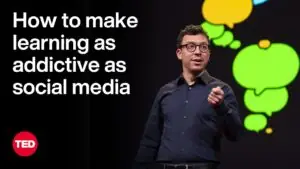AI tools are shaping our linguistic landscape in unexpected ways, with potential implications for language diversity and inclusivity. At times, these technologies may inadvertently contribute to the erosion of linguistic diversity, by ‘correcting’ dialects and variations into standardized forms of languages. However, they may also serve as instruments of linguistic preservation, particularly for endangered languages.

✅ AI Essay Writer ✅ AI Detector ✅ Plagchecker ✅ Paraphraser
✅ Summarizer ✅ Citation Generator
Key Takeaways:
- AI writing tools sometimes prompt users to ‘correct’ their dialects to standardized forms of language, which might lead to an erosion of linguistic diversity.
- There is a societal bias towards standardized language, which also reflects in AI technologies.
- AI technologies can also serve as tools for preserving endangered languages, demonstrating their potential to positively contribute to language diversity.
AI “Correction” and the Loss of Linguistic Diversity
AI writing tools have grown increasingly sophisticated, with many being capable of identifying and suggesting corrections for perceived grammatical errors or non-standard usage. This can be a valuable tool for learners, but it also runs the risk of homogenizing language, encouraging users to replace their unique dialects with standardized language. As Phillip Carter, an associate professor of English at Florida International University, stated:
“We’re deeply undermining people’s sense of selves when you cut them off from their home languages, including their home dialects.”
Societal Language Bias Mirrored in Technology
This issue isn’t solely a product of technology. The bias towards standardized language reflects deep-seated societal attitudes. Language rules and grammar are often imposed by teachers, schools, and books, which could influence the perception that standard language is ‘correct.’ This bias has found its way into AI technologies, creating a language diversity problem. As Phillip Carter also noted:
“The people who get shut out will be done so along the lines of region, class, race, and ethnicity, because that’s how our languages vary.”
The Potential for AI to Bolster Language Diversity
Despite these challenges, AI technology also has the potential to preserve and promote language diversity. AI can help process, store, and identify language patterns, contributing to the revitalization of endangered languages. Moreover, advancements in AI have facilitated the translation of unwritten languages and have been instrumental in preserving ancient cultural texts. According to Carter, “Technology has been immensely beneficial for revitalizing Indigenous and minority languages.”
The use of AI in language is a double-edged sword; while it can inadvertently promote the dominance of standard language forms, it also has the potential to protect and revive endangered languages. Recognizing and addressing the biases embedded within these technologies is a crucial step towards ensuring they serve as tools of inclusivity rather than homogenization. As Rob Troyer, an associate professor of English at Western Oregon University, noted:
“If we can’t change people’s ideologies to be more accepting of different varieties of written form, then it doesn’t matter whether the databases [on which AI-writing tools depend] are able to include them or not, because they won’t be accepted.”
This ongoing dialogue and debate underscore the complex interplay between language, technology, and society, and how they shape our perception of linguistic ‘correctness’. The hope is that with increased awareness and critical examination, both AI tools and humans can better celebrate and preserve the rich tapestry of language diversity.
Follow us on Reddit for more insights and updates.





Comments (0)
Welcome to A*Help comments!
We’re all about debate and discussion at A*Help.
We value the diverse opinions of users, so you may find points of view that you don’t agree with. And that’s cool. However, there are certain things we’re not OK with: attempts to manipulate our data in any way, for example, or the posting of discriminative, offensive, hateful, or disparaging material.